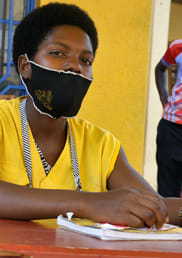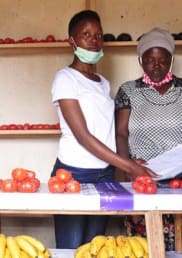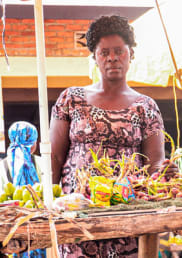Walking in the dark: Informal cross-border trade in the Great Lakes region
This research report analyses the dynamics of small cross-border trade at three border points in eastern DRC, and between Burundi and Rwanda.
Small-scale cross-border trade plays an important role in the Great Lakes region, where goods are traded between the Democratic Republic of Congo (DRC), Rwanda, Uganda and Burundi; this enables regions that do not produce enough to cover their own needs to receive supplies of products for individual consumption (mainly foodstuffs).
This trade is mostly informal insofar as the traders are not registered and pay no income taxes. However, they do pay export or import taxes accordingly and often pass through official border crossings with the appropriate travel documentation. They thereby contribute to the national economy, even though part of their operation is informal. It is for this reason that we refer to “small” or “informal” cross-border trade.
Small trade is a survival mechanism and a means of employment for at least 45,000 traders and those who depend on them in a region which has long suffered from armed conflict and in which other economic opportunities are limited. These cross-border trade links provide visible proof of the economic interdependency that exists between the countries in this region, and constitute a significant factor for economic growth and closer ties between populations which are often divided and mistrust their neighbours because of the violent conflicts which have affected and continue to affect the region.
Small informal cross-border trade is largely dominated by women: according to this study, they make up 74% of traders across four border locations in the Great Lakes region. It should be noted that they have fewer commercial opportunities than their male counterparts and that their economic contribution is often ignored by financial institutions.
Since 2000, International Alert has been promoting the political participation of women in the Great Lakes region by supporting the work of local women’s groups and associations, and since 2009 has been working on women’s economic capacities and closer ties between women traders.
This programme has two objectives: to strengthen the business environment for women working as small traders in order to improve their chances of economic survival; to create opportunities for dialogue between traders and the authorities as part of peacebuilding efforts. The capacity for women traders across the border locations targeted by this programme to liaise with one another will be strengthened, thereby increasing levels of mutual tolerance between communities on all sides of the borders.






